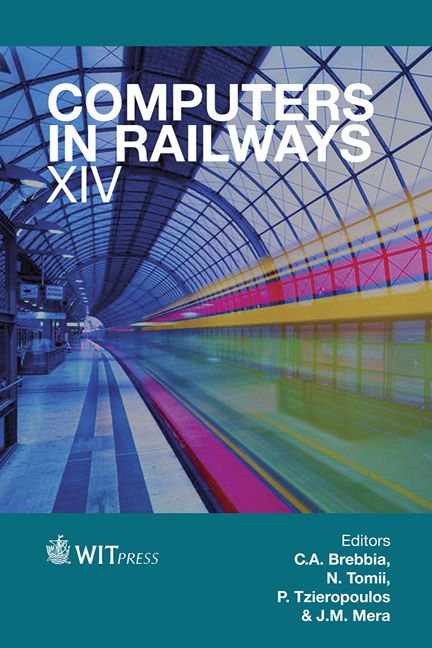Optimal Rescheduling For The Mixed Passenger And Freight Line
Price
Free (open access)
Transaction
Volume
135
Pages
13
Page Range
649 - 661
Published
2014
Size
716 kb
Paper DOI
10.2495/CR140541
Copyright
WIT Press
Author(s)
B. Davydov, B. Dynkin & V. Chebotarev
Abstract
The schedule of the double-track railway line with mixed traffic has two sections, such as passenger and freight segments. Punctuality is a measure of the quality of the passenger traffic. Local traffic punctuality in freight train traffic is an insignificant indicator. The level of the railway operator’s expenditure is a more important criterion when the flow of freight trains has passed. We propose a new approach to the problem of operational management, which is based on the direct economic assessment of the dispatcher adjustments. The method of the operative rescheduling of freight train flow prescribes that the intraday period is divided into the economic and the intensive segments. The criterion for traffic separation into segments is dependent on the level of knock-on delays, respectively, the amount of energy and additional expenditure losses. Cost-effective technology of the local management is used when the number of freight trains is reduced. In this paper, we consider the total number of secondary unscheduled stops as a measure of the quality of the freight trains flow. This criterion is used together with a specialized stochastic model. The model is based on the composition of the probability distributions of departure times from the original station and the duration of the primary train delays. Keywords: freight train traffic, rescheduling, knock-on delays, stochastic model.
Keywords
freight train traffic, rescheduling, knock-on delays, stochastic model.





